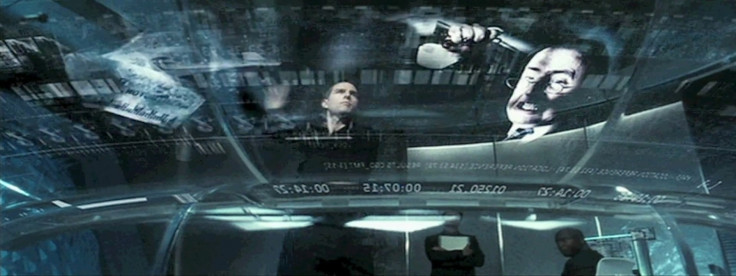Minority Report: China is developing AI technology to predict future criminals
Using artificial intelligence together with facial recognition is now a huge burgeoning industry in China.
Minority Report in real life might not be far off, thanks to a bevy of technology firms in China that are now devoted to developing facial recognition systems that can automatically detect people using artificial intelligence.
China's version of Google, the search giant Baidu, recently showed off its latest facial recognition technology at the inaugural AI developer conference held in Beijing, which is now being used to verify customers' identities by an insurance firm.
Online shopping giant Alibaba also sees the value in facial recognition. In July 2016 the firm held a publicity stunt where it challenged a famous Brainiac Wang Yuheng to beat its AI robot Mark to match hundreds of childhood photos to the Chinese celebrities they belonged to. Wang won, but it was close.
The Alipay payment service, owned by Alibaba's payment arm Ant Financial, now offers facial scanning as an authentication method when making transactions using Mark, which has a 99.5% success rate of identifying and authenticating users.
Numerous Chinese local news apps are also now using facial recognition technology via live video to authenticate the identities of trusted writers who are permitted to contribute to the service.
Detecting people from CCTV footage

And then there's the all-important upgrade to China's massive network of 176 million surveillance cameras – rather than having police officers painstakingly watch hours and hours of video footage to locate criminals, a super-smart computer could do it for them.
To that end, multiple startups are now working to develop artificial intelligence able to understand facial features and detect civil unrest automatically, which is of huge interest to the Chinese government. Xjera Labs is one of those startups – it is headquartered in Singapore with research and development facilities in Shanghai and Shenzhen.
The firm has spent five years developing its own incredibly dense 52-layer neural networks that can detect individuals, vehicles and objects from video footage with a 97% accuracy, based on a database containing 20,000 people whose faces have been captured on CCTV.
In addition to recognising different facial attributes, the neural networks can detect when people are starting a fight or climbing a fence, as well as picking out licence plates on passing vehicles and their make and model.
"This technology is important because it liberates people from tedious work, and it's a much faster way to find people. In Nanjing there was a murderer on the loose, and in order to find the guy, the Chinese police activated over 10,000 officers. They found him, but it took a few months," Xjera Labs' founder and CTO Ethan Chu told IBTimesUK in an interview in May.
Xjera Labs is already working with secondary schools in China, which want to use the facial recognition technology to see whether students are paying attention in class, and to take attendance.
© Copyright IBTimes 2025. All rights reserved.






















